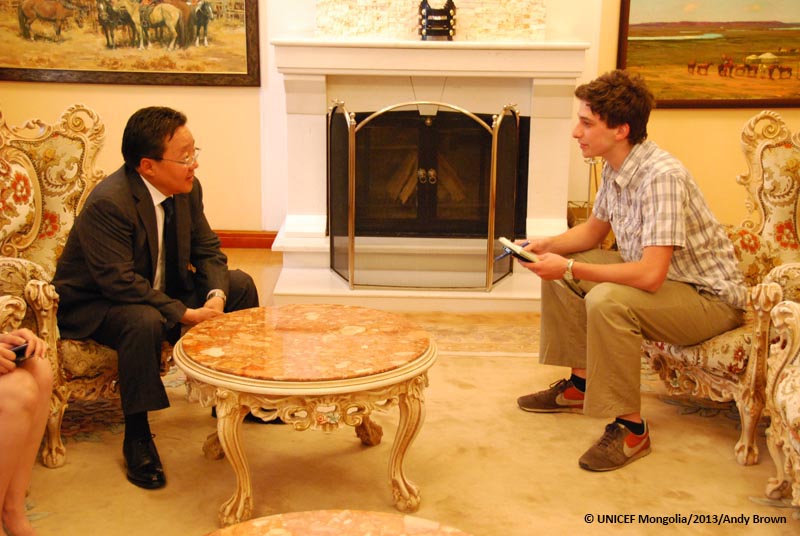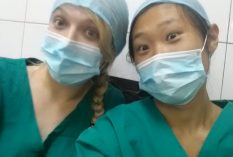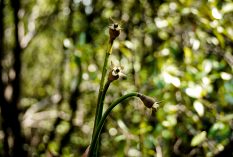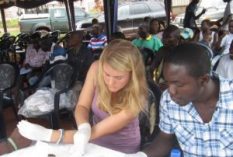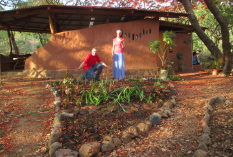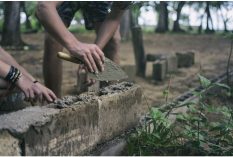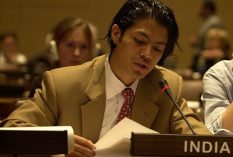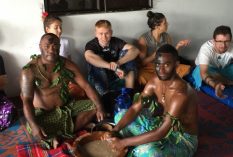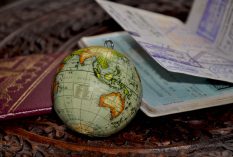It’s been two years since I went to Mongolia for a journalism internship with the UB Post, the nation’s largest independent English-language newspaper. And it’s only now that I’ve realized the full impact of that experience on my life.
It changed my perspective. It changed my goals. And it allowed me to meaningfully contribute to the reporting of the paper during my six-week stay.
Admittedly, I didn’t know all that much about Mongolia when I decided to work with Global Nomadic. But my first image when I arrived in Mongolia was, strangely, one of familiarity. When I got off the plane, depictions of Chinggis Khan (“Genghis Khan,” in the American pronunciation) were all around me, on every poster and sign in the airport. Oddly, the airport was embracing and publicizing the most stereotypical Western association with Mongolia—an ancient figure known for both his glory and for his brutality. Over the next month and a half, I would come to realize how this embrace of Khan imagery, which can be seen in many areas of Mongolia, was a perfect symbol for the westernization, development, and cultural shifts in the rapidly changing nation of 3 million people.
When working in Mongolia, there seems to be one word on the tip of everyone’s tongue—mining. And the vast majority of my reporting dealt, at least tangentially, with that topic. In recent years, foreign companies have been digging up the Gobi Desert in search of precious metals. The mining operations have given Mongolia a newfound wealth it has not enjoyed in many years. The country had a double-digit GDP growth rate from 2011-2013, making it the fastest growing economy in the world (by most estimates). In a country traditionally known in the West for its ancient history and pastoral nomadic herding lifestyle, this wealth has created rapid urbanization and development in Mongolia. And the mines have fostered debate around all sorts of issues that are fascinating to cover as a journalist, such as the environment, income inequality, globalization, and corruption, just to name a few.
One of the main challenges in dealing with the new wealth is the government, which is a relatively new democracy that formed after the collapse of the Soviet Union. The cultural impact of Mongolia’s socialist period can be seen when first entering Ulaanbaatar, the nation’s capital, as concrete structures covered in Cyrillic writing dominate the skyline. Since its socialist times, Mongolia has made a transition to a democratic and capitalist system, which shares most of its power between the Democratic Party and two more leftist parties—the Mongolian People’s Party and the Mongolian People’s Revolutionary Party. During the height of the USSR, Mongolia shirked many of its oldest symbols and traditions. But as the Soviet Union collapsed, the Mongolian government had to turn to its older history to find symbols of nationality and prominence. The result: a giant statue of Chinggis Khan sits in the front of the Ulaanbaatar’s Government Palace, as the small nation with newfound wealth tries to assert itself on the world stage, while sandwiched between the two great powers of Russia and China.
I mention the history and background to underscore the feeling of dynamism in Mongolia. The traditional nomadic herders are still prominent, but new skyscrapers seem to pop up every month in the capital city.
I also mention the background to underscore the vital role of journalists in Mongolia. Successful democracies need independent journalists to check the government and inform the people. And that need is particularly important for a relatively new democracy handling large sums of money. Transparency International ranks Mongolia high on its corruption index. And among many of my coworkers, one of the first words out of their mouths after “mining” was often “corruption.”
The challenges facing Mongolian media outlets are impressive. Strict defamation and libel laws force journalists to cut stories before they go to press. In addition, powerful government officials and business leaders own many of the papers and news outlets, threatening the media’s ability to check the power of public officials and large companies. With the environmental impact of mining operations threatening the livelihoods of herders in the countryside, and with corporate profits exacerbating economic inequality in the city, the need for journalistic accountability in Mongolia is great. And that’s exactly where the role of the foreign journalist volunteer comes into play.
From the beginning, I saw my role as supplementing the accountability reporting of the UB Post. The Post is largely a paper for foreigners, as most Mongolians either do not speak English fluently or prefer to get their news in Mongolian. In an increasingly globalized market and society like Mongolia’s, the need for a paper like the Post to accurately and meaningfully inform foreigners about Mongolian issues is particularly important. Unfortunately, while I was there, the Post did not put out much original content. Rather, its journalists merely translated older news from a sister paper from Mongolian into English, which made the reporting dated, untargeted, and sometimes uninformed.
My supervisors, at first, wanted me to compile the paper’s international page several times per week, as I’d write stories on international news. But I soon expressed a desire to do original reporting on domestic issues. After I did some reporting on local stories, I was able to work as a full-time reporter, producing original content for the papers on a variety of issues.
By taking initiative and building up connections over time, I was able to write some longer magazine-style features. The best part was that, unlike in America, I could report on important national-scale issues with only the experience level of a college student. I wrote about a family that went from herding in the countryside to working bank jobs in the city—a transition similar to those made by many Mongolian families in the new economy. I wrote about the poor conditions for the blind and partially sighted in Mongolia who, at the time, enjoyed only a 3% employment rate. For one story, I worked my way into getting a one-on-one interview with the President of the country, Ts.Elbegdorj. We talked about children’s rights and his campaign for reelection that summer.
There were some fun and bizarre stories as well. I covered the Mongolian National Basketball Association’s finals, during which I got to hear the captivating stories of American players, who were drafted from overseas to play in the league. I also covered the opening of the first KFC in the country, as they unveiled the massive smiling face of Colonel Sanders on a sign in downtown Ulaanbaatar.
The people, the issues, and the stories made me passionate about my work in Mongolia—passionate in a way that I had never really felt about my work before that point. It inspired me to learn more about public policy and economics at school, as well as do some research into Mongolian history. The experience and skills I acquired in Mongolia helped me secure a reporting internship at the Los Angeles Times the following summer. But the greatest impact that my experience in Mongolia had was showing me the importance and significance of working for a cause. In this case, the cause was accountability journalism. The UB Post gave me the chance to report on national accountability stories. I’ll never forget that experience.
One day, I plan on going back to Mongolia, hoping to do more research and writing with a wider time frame. I also look forward to re-connecting with my generous host family and coworkers.
But for now, I’m grateful Global Nomadic gave me the chance to stare down the symbolically-charged statue of Chinggis Khan in Ulaanbaatar’s center, as well as the great changes he has seen over the years from his throne.
– Posted by Dashiell Young-Saver 2015

